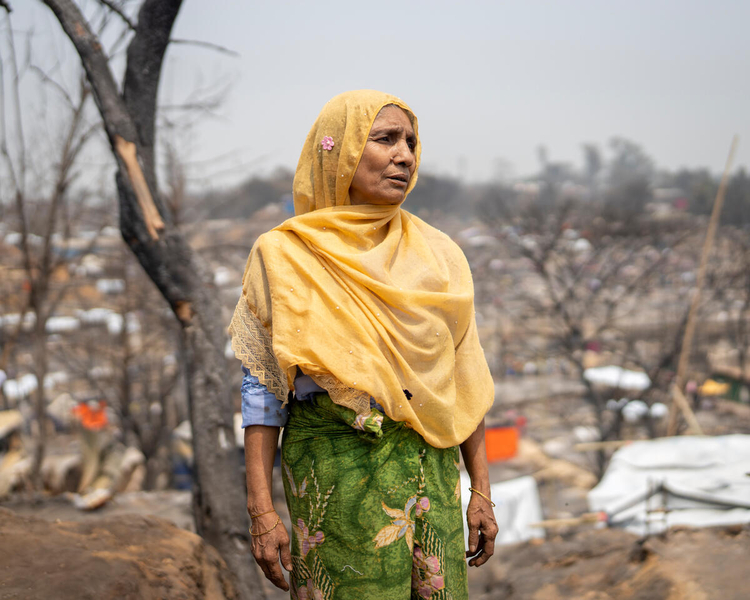Almost Five Years After 2017 Influx, Rohingya Refugees are More Vulnerable Than Ever

This is a summary of what was said by United Nations World Food Programme (WFP) spokesperson Tomson Phiri – to whom quoted text may be attributed – at today’s press briefing at the Palais des Nations in Geneva, Switzerland.
GENEVA – Almost five years after the 2017 influx of the Rohingya refugees, food security in Cox’s Bazar remains a top priority – with over a quarter of the new $943 million Joint Response Plan allocated towards fighting hunger and malnutrition among Rohingya refugees and host communities.
Rohingya refugees are more vulnerable than at any point since 2017. Latest assessments show that 96 percent of all refugees are moderately to highly vulnerable and entirely reliant on humanitarian assistance. This is largely due to the impact of COVID-19 and forced adjustments to humanitarian operations on a fragile community with limited income opportunities. Vulnerability among the host community has also increased since the start of the pandemic, as most of the labor force in Cox’s Bazar were daily wage earners.
The U.N. World Food Programme has scaled up its electronic voucher assistance to nearly all the Rohingya population in Cox’s Bazar –providing a food basket to 860,000 people from which they can choose what is best for their families. A key focus for the U.N. World Food Programme this year is to open and expand the number of Fresh Food Corners available, which give refugees access to a wider choice of locally produced vegetables and fruits as well as live chicken and fish.
The U.N. World Food Programme is integrating the host community into the Rohingya response and providing them with economic opportunities. The U.N. World Food Programme’s response to the Rohingya refugee crisis provides substantial economic opportunities to the host community – injecting $10 million into the local economy every month. All U.N. World Food Programme food assistance provided through its e-voucher outlets and fresh food corners is locally produced and procured, providing vital economic opportunities for the host community, while also improving the dietary diversity of refugees.
Cox’s Bazar is extremely disaster-prone – and refugees are immensely exposed to the elements. Every 12 months in Cox’s Bazar sees one monsoon and two cyclone seasons, meaning everyone living in the area is subject to natural disasters for nine months of the year. In 2021 we are continuing our disaster risk reduction activities, including rehabilitating cyclone shelters, improving drainage systems, stabilizing slopes in the camps, maintaining existing forests and planting new ones, and helping communities diversify their livelihood activities so they don’t rely only on agriculture for income.
Vulnerabilities in Cox’s Bazar continue to mount and would rapidly deteriorate if humanitarian assistance were decreased or discontinued.
# # #
The United Nations World Food Programme is the 2020 Nobel Peace Prize Laureate. We are the world’s largest humanitarian organization, saving lives in emergencies and using food assistance to build a pathway to peace, stability and prosperity for people recovering from conflict, disasters, and the impact of climate change.
Follow us on Twitter @WFPUSA, @wfp_media and @PhiriTomson




